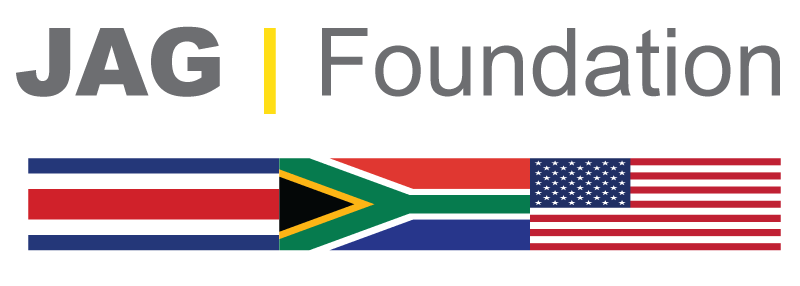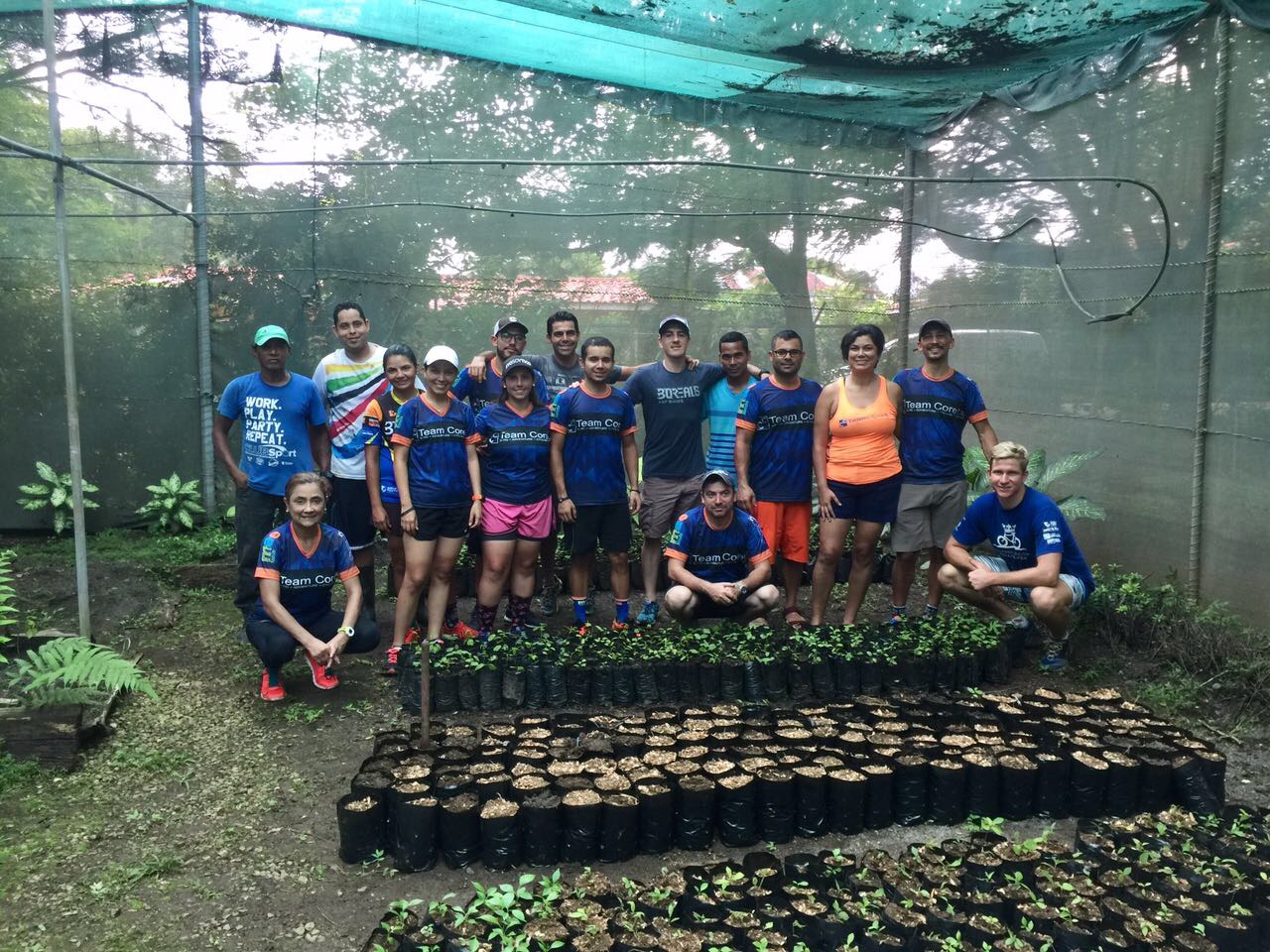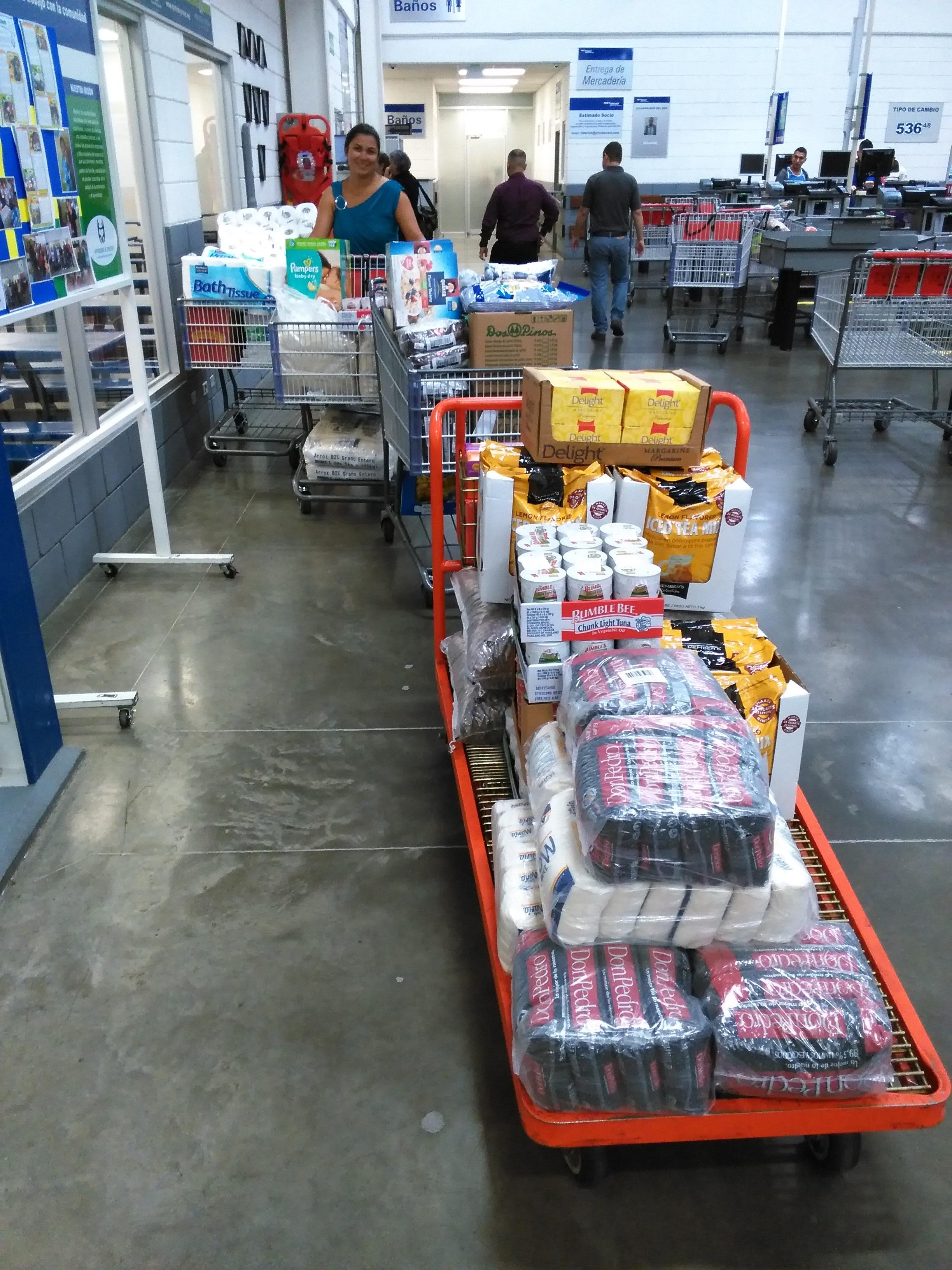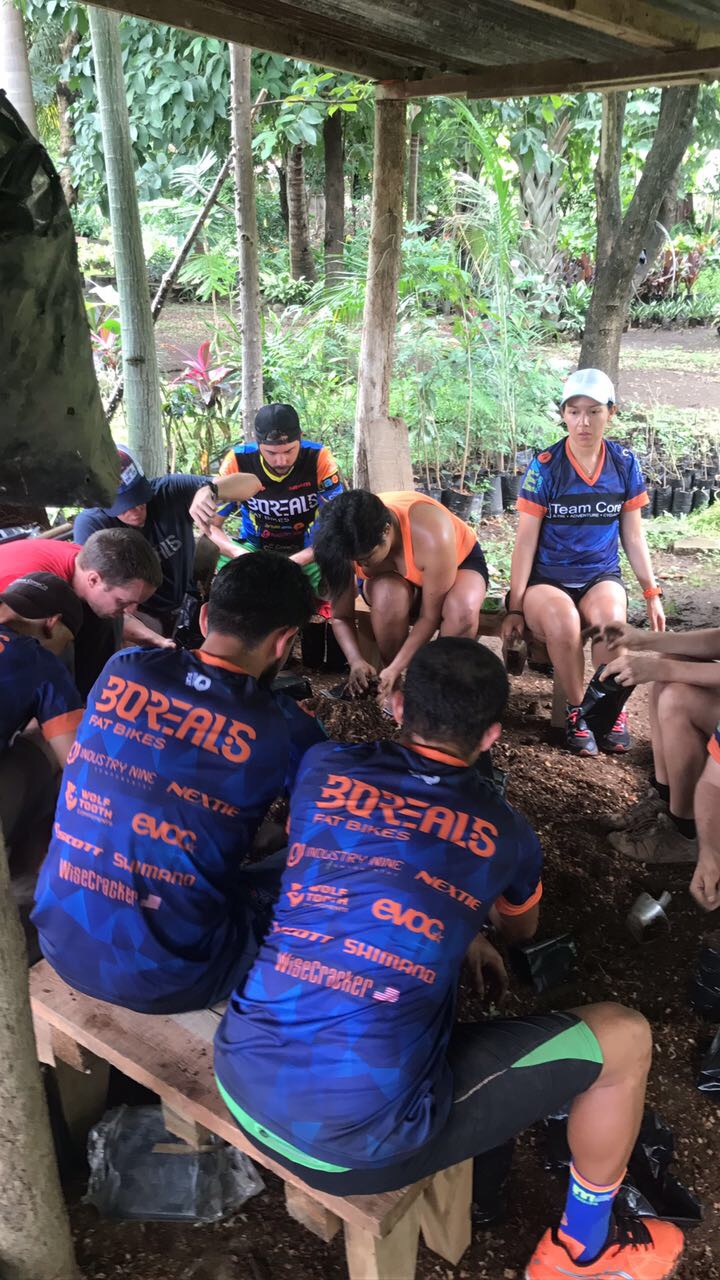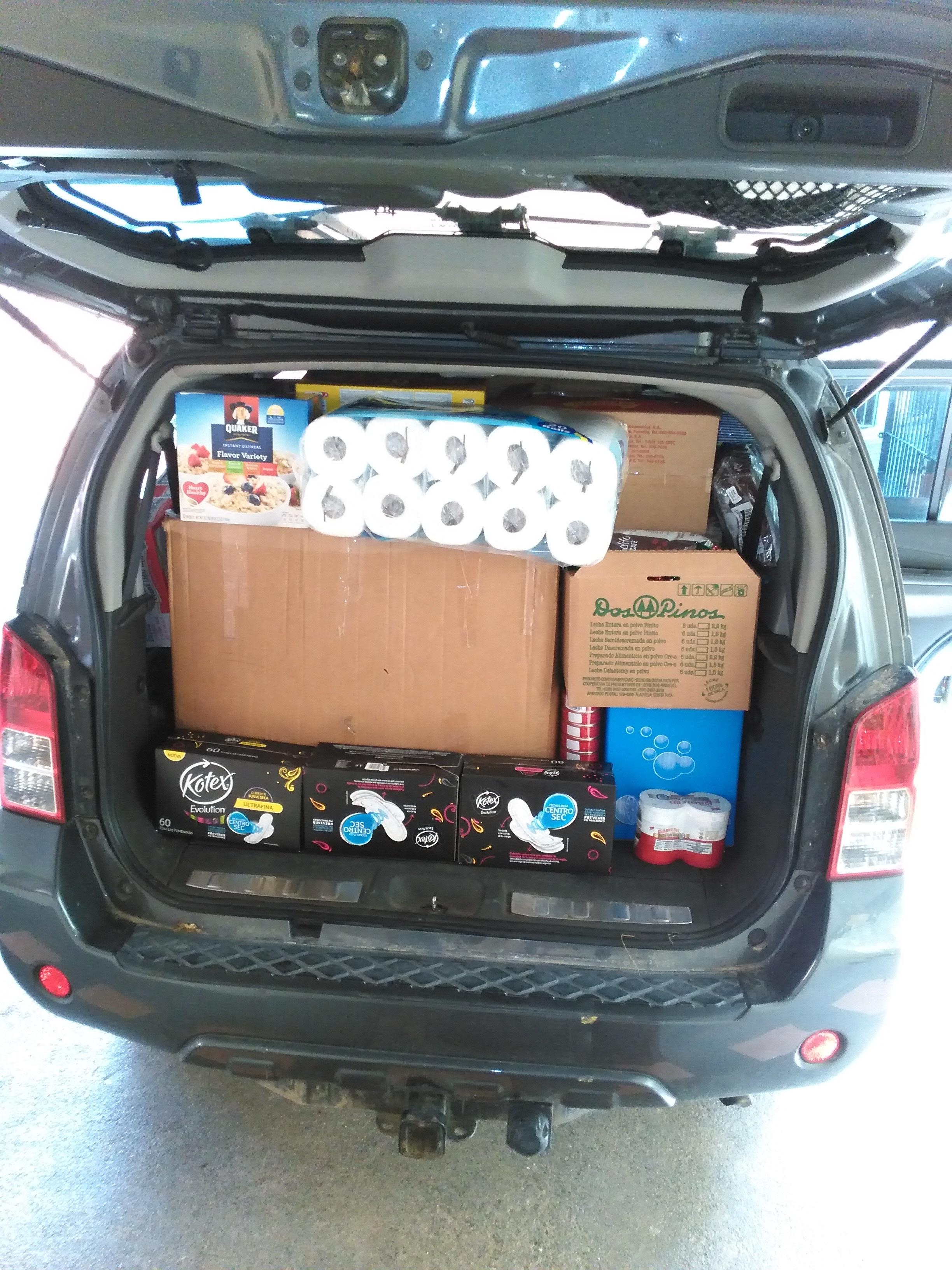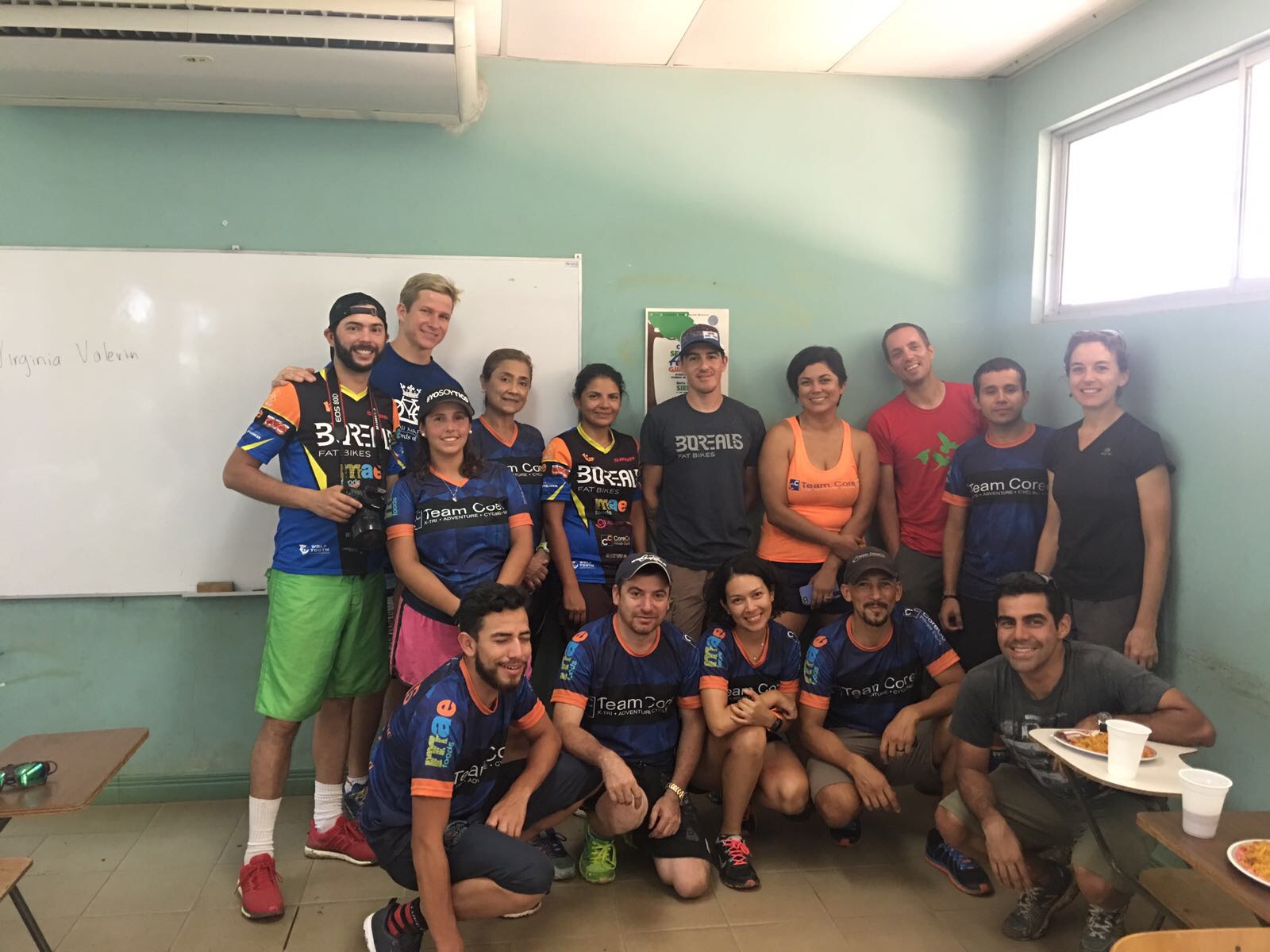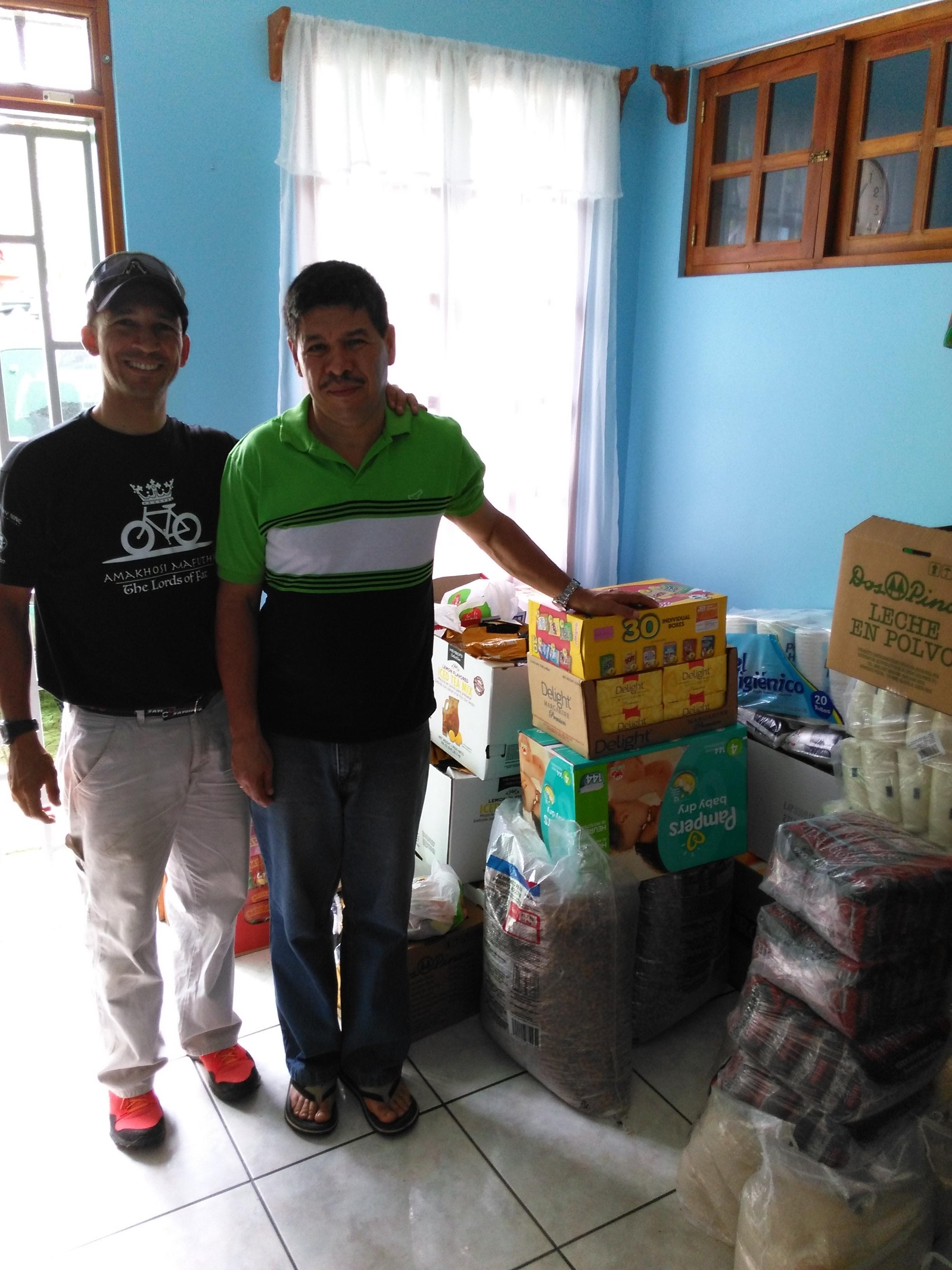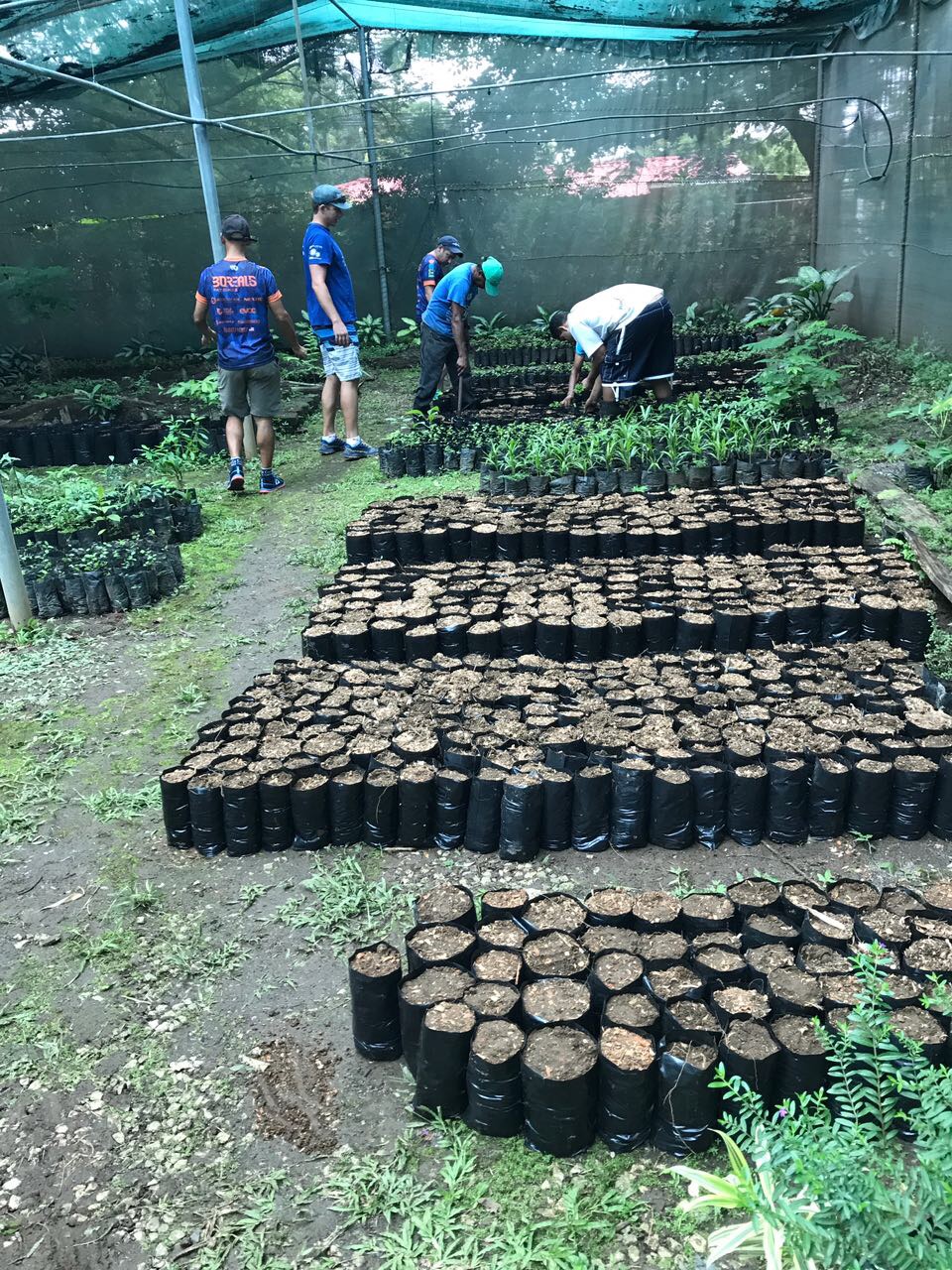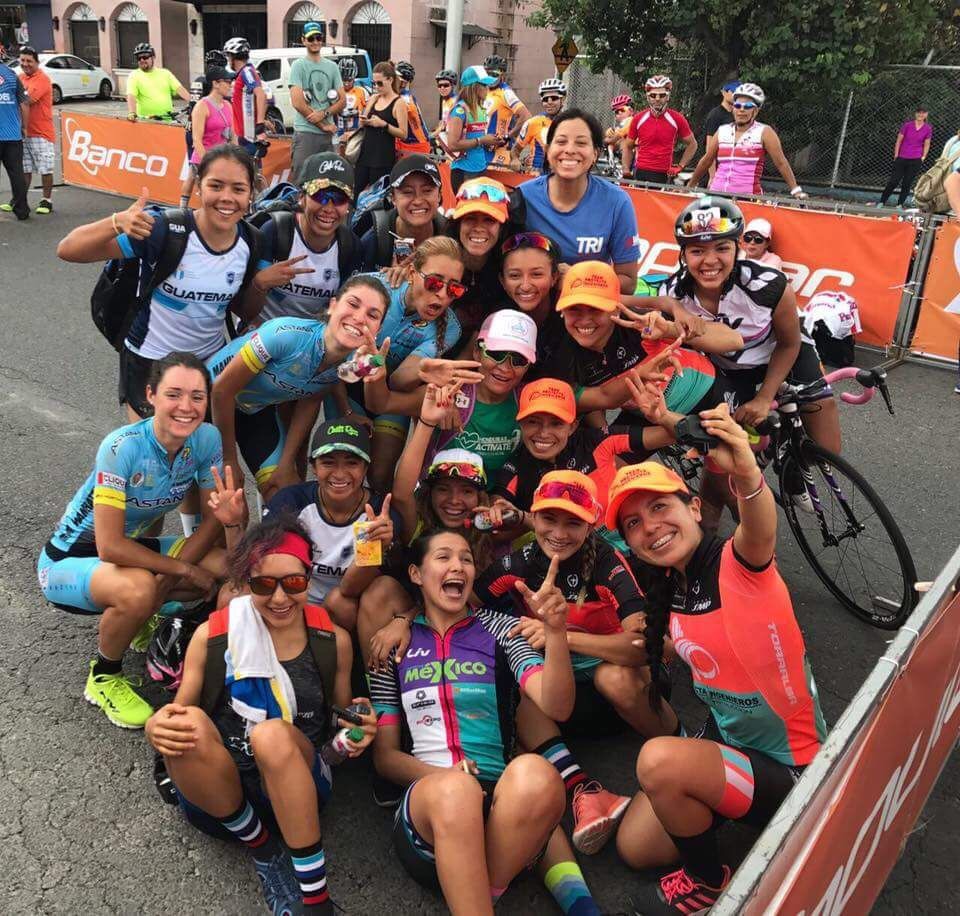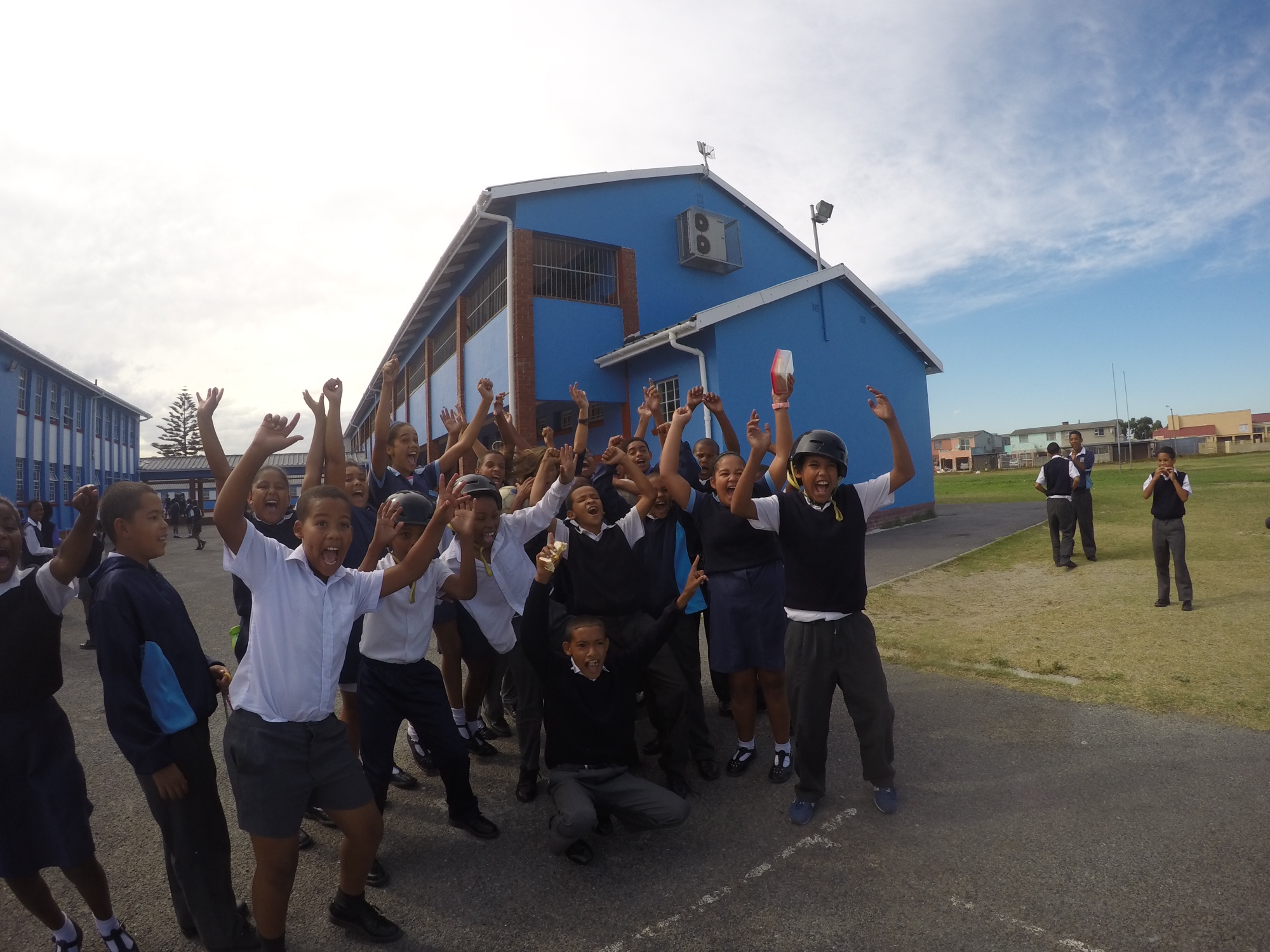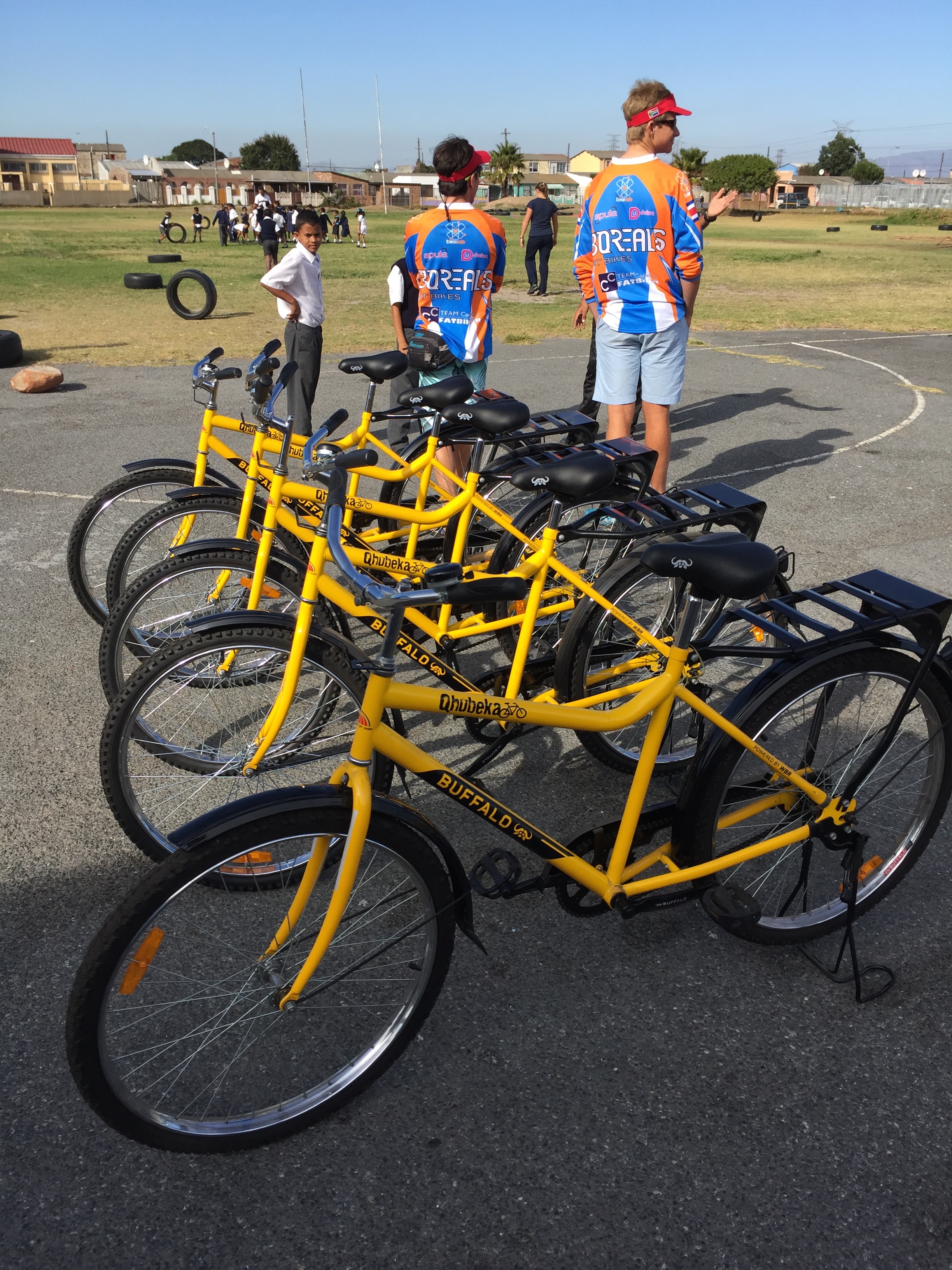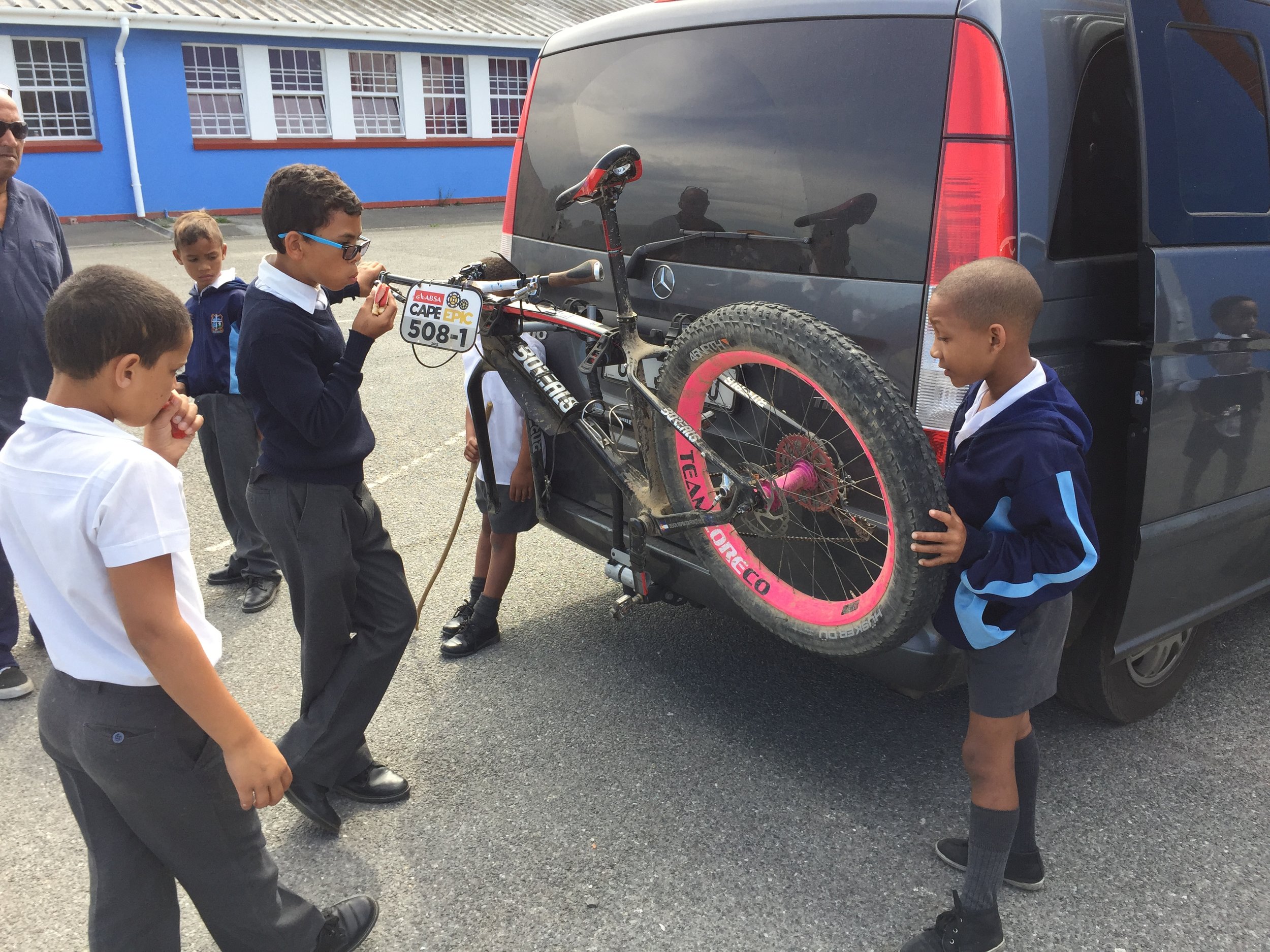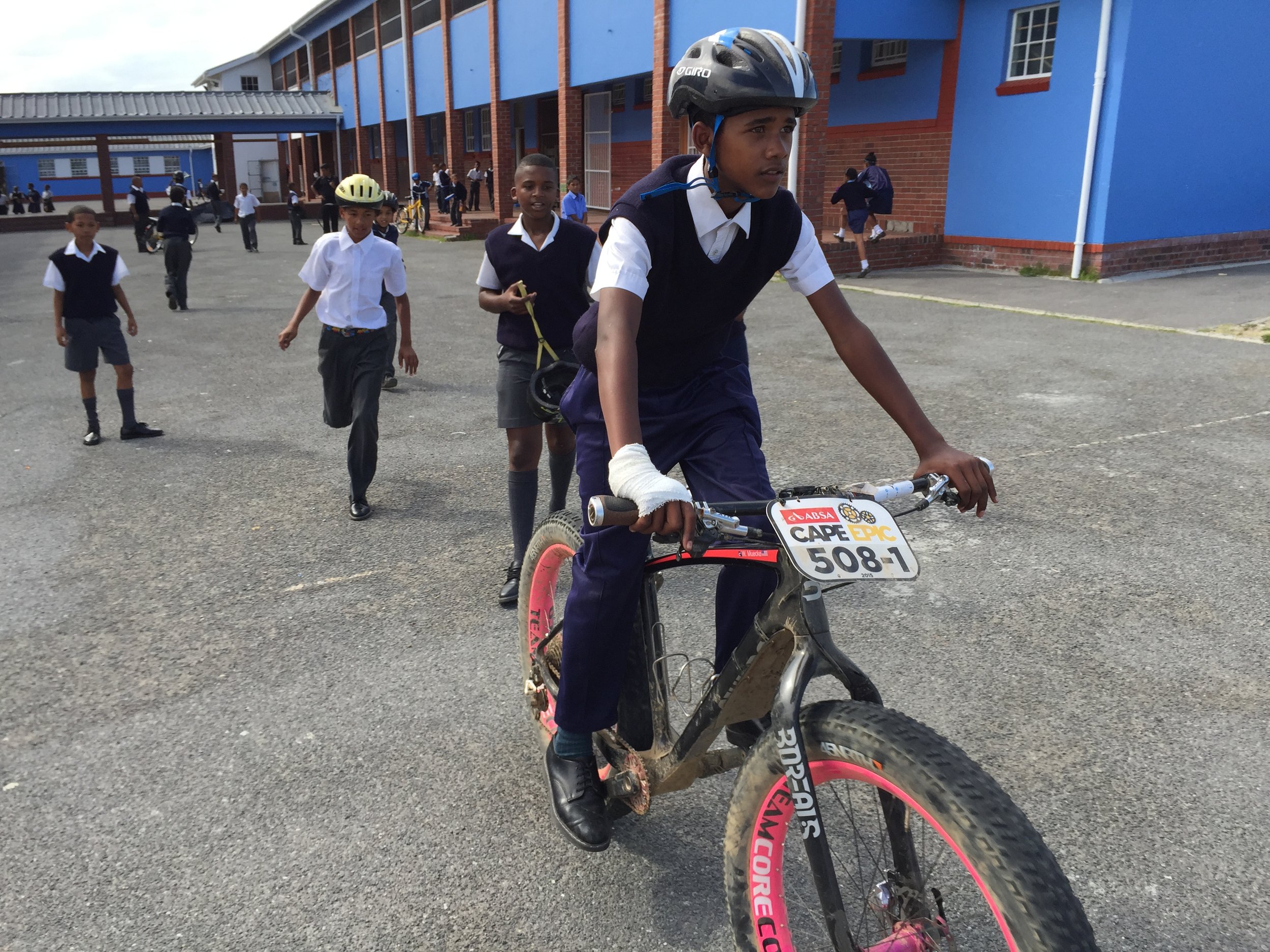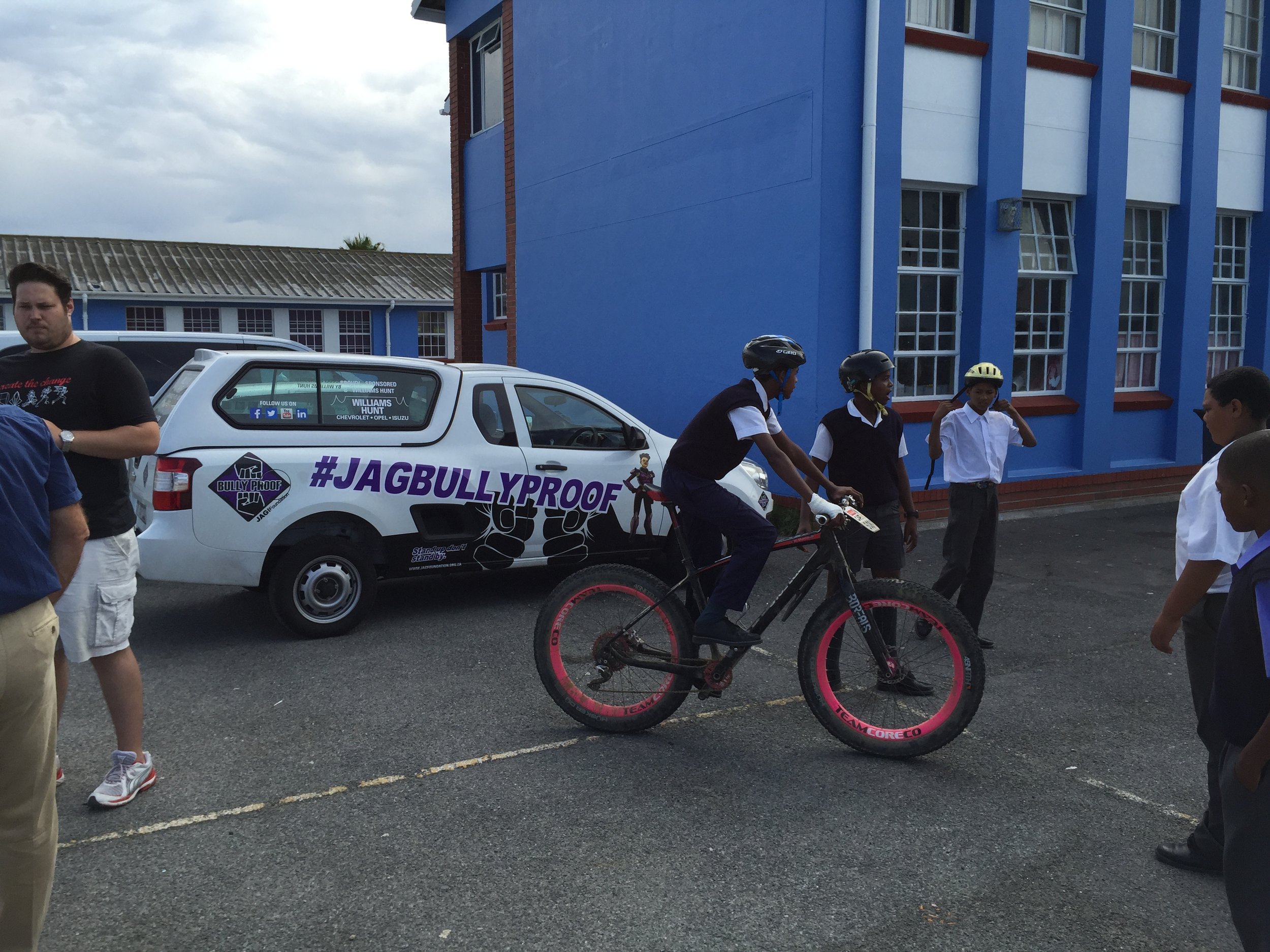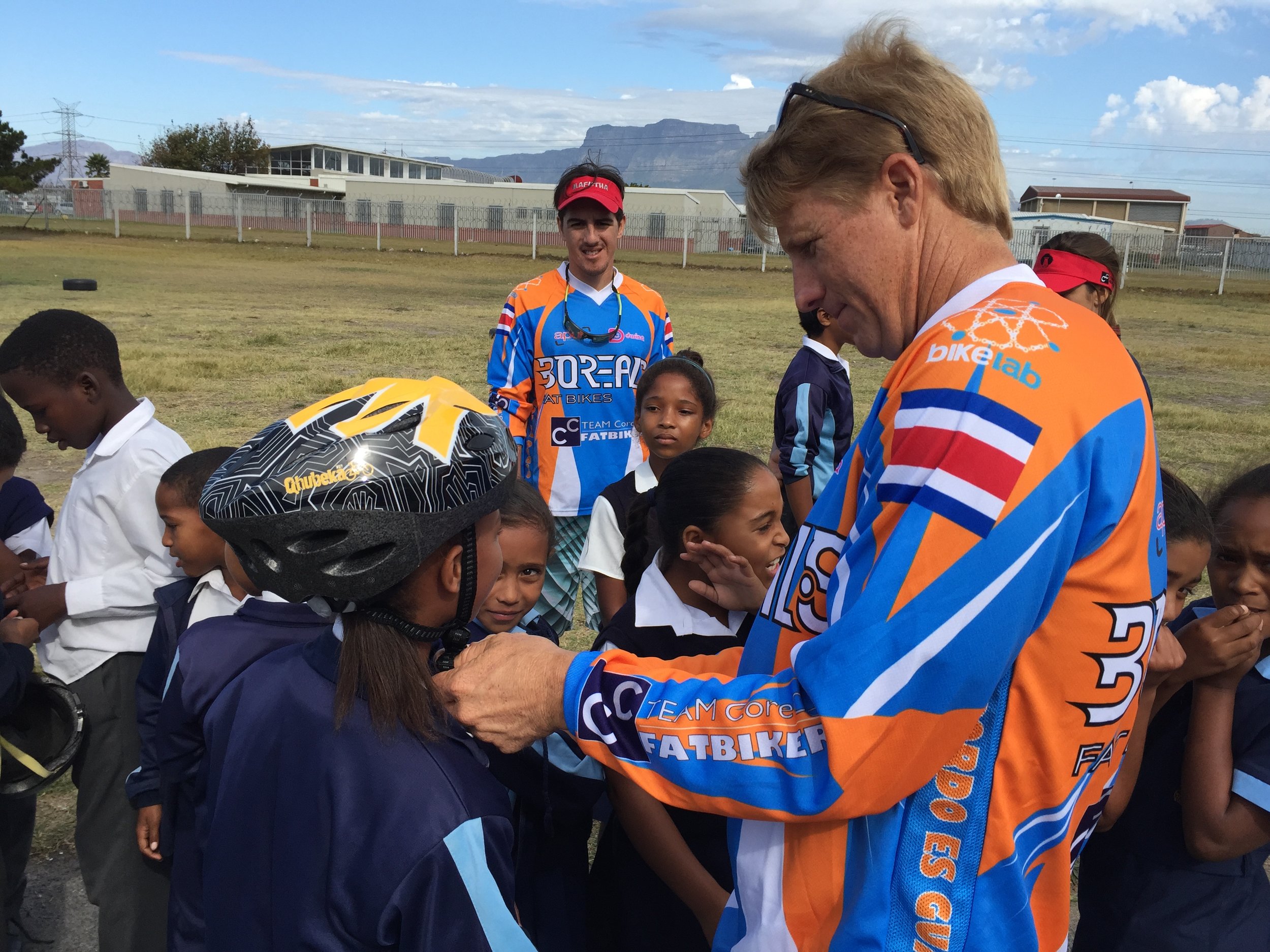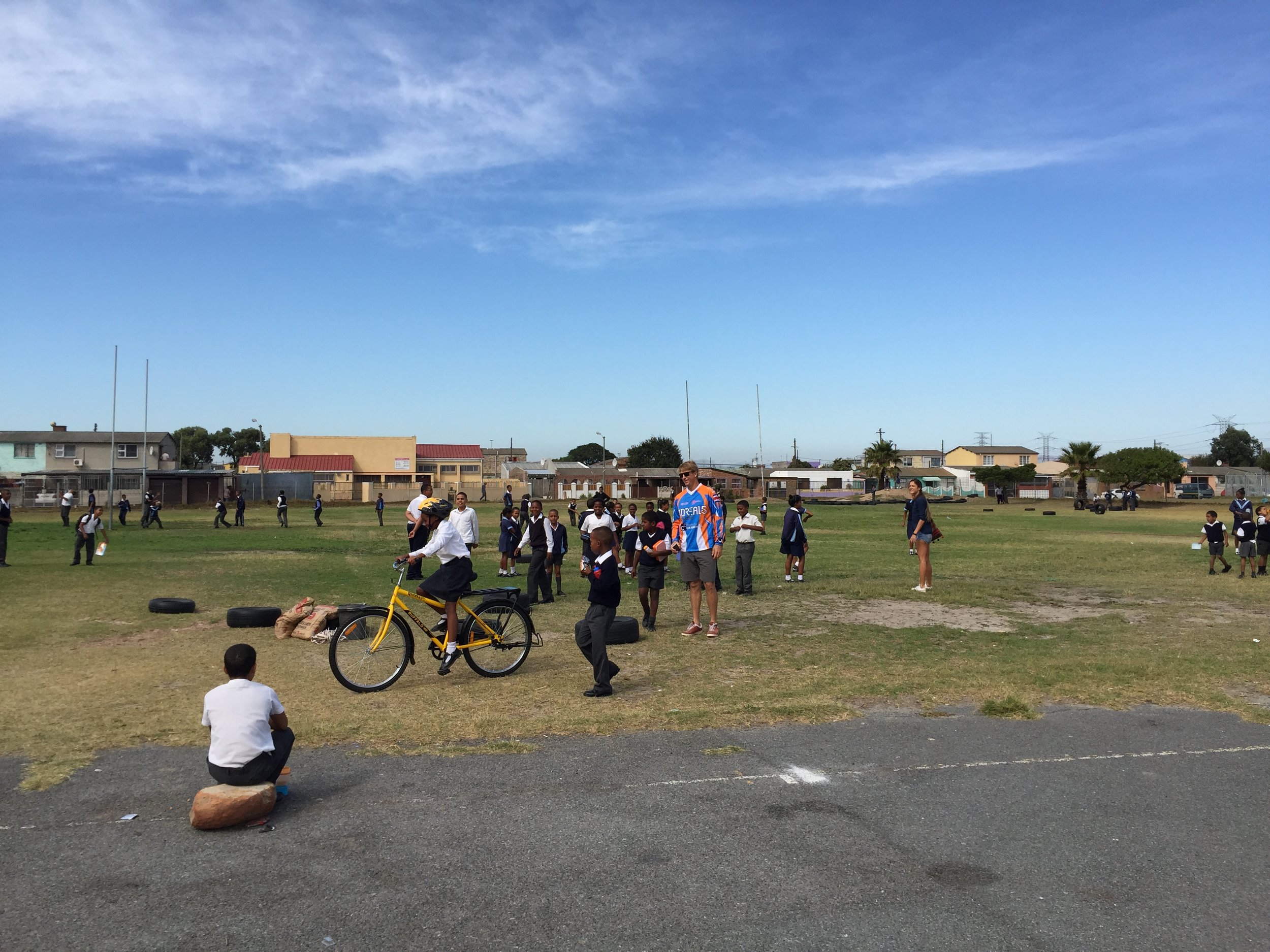Service is CENTRAL
Our team is not just the racers on the course, but is rather the collection of family, friends and supporters who stand behind each competitor and who form the Team CoreCo community. It is through that connected network that we gain the strength, confidence and discipline to train and compete.
So, it is our duty and our pleasure to give back.
Our foundation is based on the athletes living in Costa Rica. These athletes are each produtive members of their community who demonstrate personal responsibility and collective leadership in everything they do. Our athletes are examplary individuals who strive to be their best, on and off the race course.
The starting point for Team CoreCo was the launch of Team CoreCo Cycling which was begun by six "founding" team members to ride the 2011 La Ruta de los Conquistadores in Costa Rica and to raise money and awareness for the New York Chapter of the Alzheimer's Foundation (alz.org) and for CIRENAS, a 501(c)3 environmental education program based on the Nicoya peninsula in Costa Rica.
Local Community
In 2012, Team CoreCo also added ACOCI (Asociación Cobaneña Ciclismo) which is a grassroots cycling program that is focused on developing and motivating youth and community cycling through grassroots engagement programs in and around the town of Cobano located on the Nicoya peninsula in Costa Rica.
Since then, we have expanded our team to include three development squads in the three most underserved prefectures in Costa Rica: Limon, Coto Brus, and the Nicola Peninsula in Puntarenas. These three squads not only train and race in their communities, but also lean into community service to act as examples of local participation and local results.
Service projects for the athletes are a personal choice. The activities range from neighborhood and beach cleanups, student tutoring, neighbor care with helping families contract housing or implement agricultural infrastructure for food production, environmental conservation, flora and fauna custodial projects, and educational non-profit volunteer work to pay forward the benefits they, as athletes, receive from Team CoreCo.
Each athlete earns "points" toward races, training, nutrition, and equipment supplies. Local athletes get access to national and international races and events by building their "point" balance and acting as mentors and leaders on their racing squads.
In this way, we, as a team, maximize our impact wherever our local athletes ride.
Service Abroad
And while local impact is important, our service mandate is not limited by domestic borders.
Wherever Team CoreCo races, runs, swims, ride, or recreates, we look to make a positive impact in our international host communities, as we do in our local home region.
We believe that it is imperative that we go beyond the "tourist athlete" and in doing so seek opportunities to work with community leaders in our host locales to pitch in an work with those resident groups to address otherwise unmet needs through service projects.
As traveling athletes, we have worked with anti-bullying groups and bike share programs in South Africa, we have raised money to combat domestic violence in the Alaskan interior, we have planted trees for reforestation projects and have purchased computers for local primary schools, and we have pushed each of our athletes to find ways to give back in their hometown, whether they are in Anchorage, New York, Cape Town, Guatemala City, or Geneva.
Service is at our core, and we invite all who train and race with us to pitch in an change the world through positive, active engagement. Come work with us! We can always use another set of hands.
SERVICE PARTNERS
Team CoreCo works with NGOs, non-profits, community groups, and individuals to direct and implement service projects and community engagement. Below are a sampling of the service partners that Team CoreCo has worked with, and is working with, in Costa Rica and across the world.
CIRENAS (Costa Rica)
CIRENAS (Centro de Investigación de Recursos Naturales y Sociales) is based on the Pacific coast of the Nicoya Peninsula within Hacienda Ario; a 4,700 acre family owned mixed use coastal ranch. The property resides next to the Caletas-Ario Nature Reserve, one of the last large stretches of undeveloped coastline in the region. The 750-acre nature reserve was established in 2006 by the Costa Rican government and the Grew family. The area contains two of the largest rivers on the peninsula, wetland and mangrove complexes, tropical dry forests, agricultural areas, small rural communities and a 12 nautical mile marine protected area, home to nesting sea turtles.
Hacienda Ario is committed to sustainable development in the Nicoya Peninsula and is engaging in reforestation programs as well as implementing organic agricultural practices with the goal of receiving a certification from the Rainforest Alliance for sustainable agriculture and ranching. Hacienda Ario is also the first large-scale ranch to be certified by the Sustainable Blue Flag Program (Bandera Azul), a government program for climate change mitigation (NOTE: Costa Rica has the goal of becoming the first carbon neutral country by 2021). From this desire to promote sustainability on all fronts, CIRENAS was established in 2007.
Since its founding, CIRENAS has hosted more than 1,000 students of all ages, faculty, scientists, and others in a variety of programs emphasizing sustainable living and transformational cross-cultural experiences. Courses include opportunities for Spanish immersion, experiential education, outdoor leadership, tropical biology, sustainability, environmental conservation, social responsibility, and service learning.
Cirenas is committed to providing students and guests inspiring and transformative experiences that create positive change for a better world and a better tomorrow.
Huella Verde-UNED (Costa Rica)
Huella Verde-UNED is the operative group of Ecological Restoration Network State University (Red de Restauración Ecológica de la Universidad Estatal a Distancia, or UNED), attached to the Society for Ecological Restoration (SER) and linked to various Latin American networks pursuing similar objectives. We constitute a body of academic and scientific partners, comprised of an interdisciplinary group of professionals committed to the generation and transfer of scientific knowledge towards research, monitoring and restoration of ecological, social and environmental impacts of degraded ecosystems functions. Under the "naturally connected" motto, we work in an articulated manner with government institutions, private sector, non-governmental organizations and civil society, encouraging the participation of all groups in inclusive manner, supportive, responsible and transparent.
UNED is committed to working with the target country's carbon neutrality to promote environmental conservation as a strategy for adapting to climate change and promote restoration of ecosystem goods and services, through research and conservation national biodiversity strategies emphasizing functional ecological restoration conditions improve human welfare. That is why through the Footprint Green-UNED project aims to promote a system of environmental sustainability, which constitutes not only a model of environmental responsibility in the country, but a mechanism for managing financial resources are invested in research and our valuable biodiversity conservation, based on the commitment of the institution and the principle of solidarity of civil society. For it will have highly qualified and committed to the initiative, those making use of scientific knowledge, technological resources and strategic alliances, will ensure compliance with the goals established staff.
JAG Foundation (South Africa)
Alcohol and drugs are the root cause of almost all of South Africa’s ills: gangsterism, crime, HIV/AIDS, domestic violence, broken homes and unemployment etc., which are actively prevalent in the lives of children in high risk communities.
To a large part, these ills are accepted as part of a natural life path, where there is a culture you live by with no alternatives or perceived options for these children.
We as the JAG Foundations utilise sport and play as a catalyst for change, exposing children in disadvantaged communities to an alternate life path. Our mentoring, coaching, knowledge and organised sport and play programmes, target the issues of alcohol, drugs and gangsterism head-on by showing children the real and attainable opportunity of an alternative life path, that can give them hope and an escape from a societal predisposition of their future.
QHUBEKA (South Africa)
Qhubeka moves people forward with bicycles. People earn bicycles through our programmes, improving access to schools, clinics and jobs.
Qhubeka is an Nguni word that means “to progress”, “to move forward”. Bicycles help people move forward. With a bicycle, a person can travel faster and further, and carry more.
People earn bicycles through our programmes:
- Learn-to-earn programmes for children
- Work-to-earn programmes for adults
We also provide bicycles to first responders for disaster relief.
BERING SEA WOMEN'S GROUP (Alaska)
Mission: To provide a safe haven for women and children who are victims of domestic violence, sexual assault, or other violent crimes while promoting a safe, healthy, and violence-free community.
- Emergency housing
- 24-hour crisis line (1-800-570-5444 or 907-443-5444)
- Advocacy
Located in Nome, Alaska.




